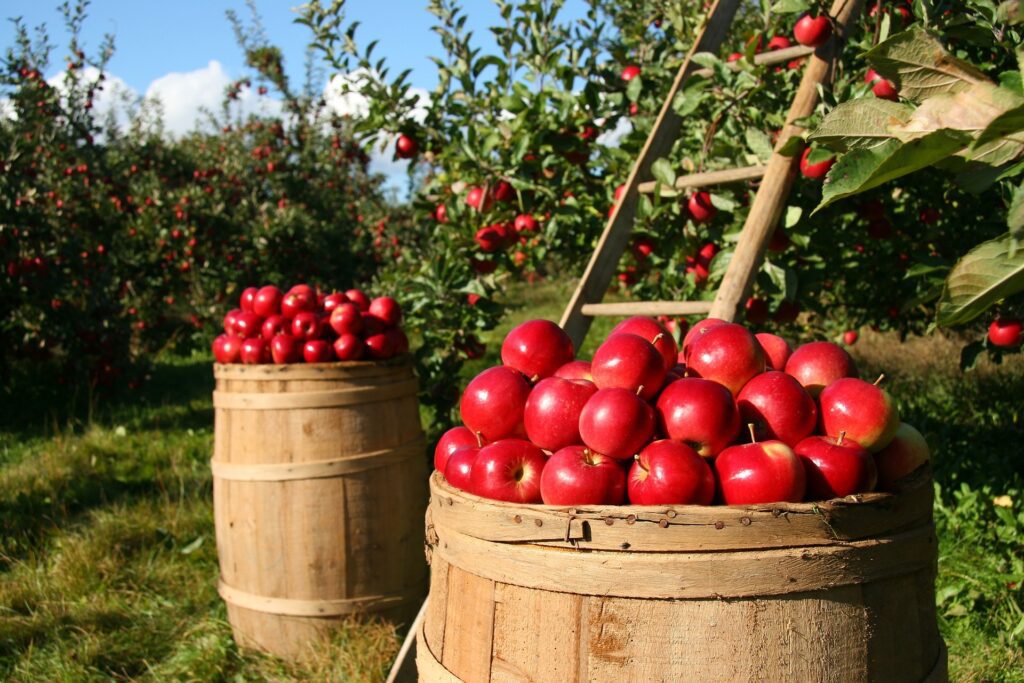Table of Contents

Introduction for Crafting a Comprehensive Organic Farming Business Plan
Organic farming represents a holistic approach to agriculture that emphasizes sustainability, environmental stewardship, and consumer health. Unlike conventional farming, which often relies on synthetic chemicals and industrial practices, organic farming integrates natural processes and ecological balance. As the demand for organic produce continues to rise, establishing a successful organic farming business requires careful planning and strategy. This blog will guide you through the essential steps of creating an effective organic farming business plan, helping you to turn your vision into a thriving and sustainable enterprise.
Understanding Organic Farming
Definition and Principles-Organic farming is an agricultural method that avoids synthetic pesticides, fertilizers, and genetically modified organisms (GMOs). Instead, it focuses on natural processes and ecological balance to maintain soil health, enhance biodiversity, and ensure animal welfare. Key principles include: Organic Farming Business Plan
Soil Health: Building and maintaining healthy soil through composting, crop rotation, and organic amendments.
Biodiversity: Encouraging a diverse range of plants and animals to create a balanced ecosystem.
Natural Pest Management: Using biological controls and natural predators to manage pests rather than synthetic chemicals.
Animal Welfare: Providing animals with access to pasture and a diet free from antibiotics and growth hormones.


Benefits of Organic Farming
Organic farming offers numerous advantages:
Environmental Protection: Reduces pollution and preserves ecosystems by avoiding synthetic chemicals. Organic Farming Business Plan
Health Benefits: Produces food free from potentially harmful residues and GMOs.
Economic Opportunities: Organic products often command higher market prices and cater to a growing consumer base interested in sustainable practices.
Market Research and Analysis
Importance of Market Research-Market research is crucial for understanding the dynamics of the organic food industry. It helps you identify opportunities, gauge demand, and develop strategies to position your farm effectively.
Identifying Target Markets
Consumer Trends: Analyze trends in organic food consumption, such as increasing demand for locally grown produce and specialty organic products.
Demographics: Identify key customer segments, such as health-conscious consumers, families, and environmentally aware individuals.
Analyzing Competitors-Study local and regional competitors to understand their strengths and weaknesses. Evaluate their product offerings, pricing strategies, and marketing approaches. This will help you identify gaps in the market and areas where you can differentiate your farm. Organic Farming Business Plan


Pricing Strategies and Profit Margins-Organic products generally have higher price points compared to conventional ones. Calculate your production costs, including labor, materials, and overheads, to determine pricing strategies that ensure profitability while remaining competitive.
Business Objectives and Goals
Setting Clear Goals-Establish clear and measurable goals for your organic farming business. These may include:
Short-term Objectives: Launching your farm, achieving initial sales targets, and obtaining organic certification.
Long-term Objectives: Expanding your product range, increasing market share, and achieving financial sustainability.
Developing a Mission Statement-Craft a mission statement that reflects your farm’s values, goals, and commitment to organic practices. This statement will guide your business decisions and communicate your purpose to customers, partners, and employees.
Farm Structure and Design
Choosing the Right Location-Selecting a suitable location is crucial for the success of your organic farm. Consider factors such as:
Soil Quality: Test soil for fertility and suitability for your chosen crops.
Climate: Ensure the climate supports the types of crops you plan to grow.
Water Resources: Assess availability and quality of water for irrigation. Organic Farming Business Plan
Farm Layout and Crop Rotation-Design a farm layout that maximizes efficiency and supports sustainable practices. Plan for crop rotation to enhance soil health and reduce pest and disease pressures. Incorporate features such as:
Greenhouses: For growing crops in controlled environments.
Irrigation Systems: Efficient watering systems to conserve water.
Sustainable Practices-Adopt practices that promote sustainability, such as:
Cover Crops: Use cover crops to prevent soil erosion and improve soil fertility.
Companion Planting: Plant complementary crops together to enhance growth and reduce pest problems.
Crop Selection and Production
Deciding Which Crops to Grow-Choose crops based on market demand, soil conditions, and your farm’s capabilities. Consider:
Seasonal Crops: Plan for seasonal variations and crop rotation.
High-Value Crops: Focus on high-value or niche crops that have strong market demand.
Organic Pest and Disease Management-Implement organic pest management techniques, such as:
Biological Controls: Use natural predators like ladybugs to control pests. Organic Farming Business Plan
Organic Pesticides: Apply natural or organic-approved pesticides when necessary.
Sustainable Soil Fertility Practices-Enhance soil fertility through practices such as:
Composting: Use organic waste to create compost that enriches the soil.
Green Manures: Incorporate green manures or cover crops to add organic matter to the soil.
Financial Planning and Budgeting
Initial Startup Costs-Estimate the initial costs required to start your organic farm. These may include:
Land Acquisition: Purchase or lease of land.
Equipment: Tools, machinery, and infrastructure.
Seeds and Inputs: Organic seeds, compost, and other inputs.
Ongoing Operational Expenses-Budget for ongoing expenses such as:
Labor Costs: Wages for farm workers.
Maintenance: Upkeep of equipment and infrastructure.
Utilities: Water, electricity, and other utilities.
Revenue Projections-Create revenue projections based on expected yields, pricing, and market demand. Use these projections to set financial goals and track your progress. Organic Farming Business Plan
Securing Funding-Explore funding options such as:
Grants: Look for agricultural grants and subsidies for organic farming.
Loans: Consider agricultural loans for startups.
Investors: Seek investors interested in supporting sustainable agriculture.


Marketing and Sales Strategy
Developing a Brand Identity-Create a strong brand identity that reflects your farm’s values and differentiates your products. This includes: Organic Farming Business Plan
Brand Name and Logo: Develop a memorable brand name and logo.
Packaging: Use eco-friendly and attractive packaging.
Creating a Marketing Plan-Develop a comprehensive marketing plan that includes:
Online Presence: Build a website and use social media to reach potential customers.
Local Markets: Participate in farmers’ markets and local events to connect with consumers.
Retail and Wholesale: Establish relationships with retailers and distributors.
Building Relationships-Foster relationships with:
Retailers: Approach local stores and grocery chains to stock your products.
Distributors: Partner with distributors who specialize in organic products.
Utilizing Farmer’s Markets and CSA Programs-Participate in farmers’ markets to sell directly to consumers. Consider starting a Community Supported Agriculture (CSA) program to build a loyal customer base and secure upfront funding.Organic Farming Business Plan
Legal and Certification Requirements
Organic Certification Standards-Understand the requirements for organic certification, including:
Certification Bodies: Research organizations that offer organic certification.
Compliance: Ensure your farming practices meet certification standards.
Local, State, and Federal Regulations-Comply with all relevant regulations, including:
Business Registration: Register your business with local authorities.
Permits: Obtain necessary permits for farming activities and sales.
Risk Management and Contingency Planning
Identifying Potential Risks-Identify potential risks such as:
Weather: Extreme weather conditions that may affect crop yields.
Pests and Diseases: Outbreaks that could damage crops.
Market Fluctuations: Changes in market demand and prices.
Developing Contingency Plans-Create contingency plans to address these risks:
Emergency Plans: Develop plans for weather-related emergencies and pest outbreaks.
Financial Reserves: Maintain financial reserves to handle unexpected expenses.
Insurance Options-Consider insurance options such as:
Crop Insurance: Protects against losses due to crop failures.
Liability Insurance: Covers potential liabilities related to farm operations.
Implementation Plan and Timeline
Creating a Step-by-Step Plan-Develop a detailed implementation plan that outlines:
Startup Activities: Initial setup tasks, including land preparation and infrastructure development.
Operational Milestones: Key milestones such as planting, harvesting, and sales targets.
Setting Milestones and Deadlines-Establish clear deadlines for each phase of your plan. Regularly review progress and adjust timelines as needed to stay on track.
Tracking Progress-Monitor your progress against the plan and make necessary adjustments. Use performance metrics to evaluate success and identify areas for improvement. Organic Farming Business Plan
Conclusion
Creating a well-structured organic farming business plan is essential for launching and sustaining a successful farm. By following the steps outlined above, you can develop a comprehensive plan that addresses market research, financial planning, and operational strategies. Organic farming not only offers environmental and health benefits but also presents significant economic opportunities. With careful planning and dedication, you can build a thriving organic farming business that contributes positively to both the planet and your community. Organic Farming Business Plan